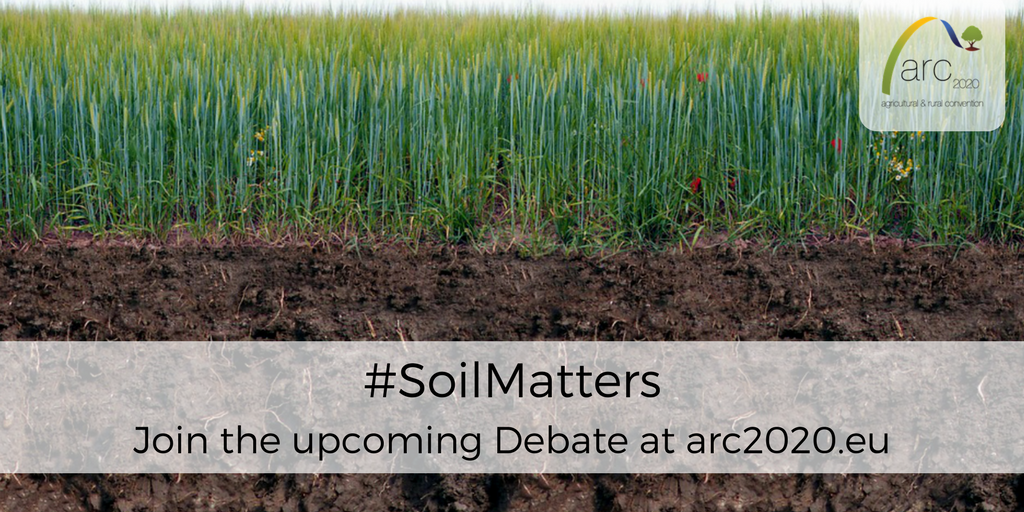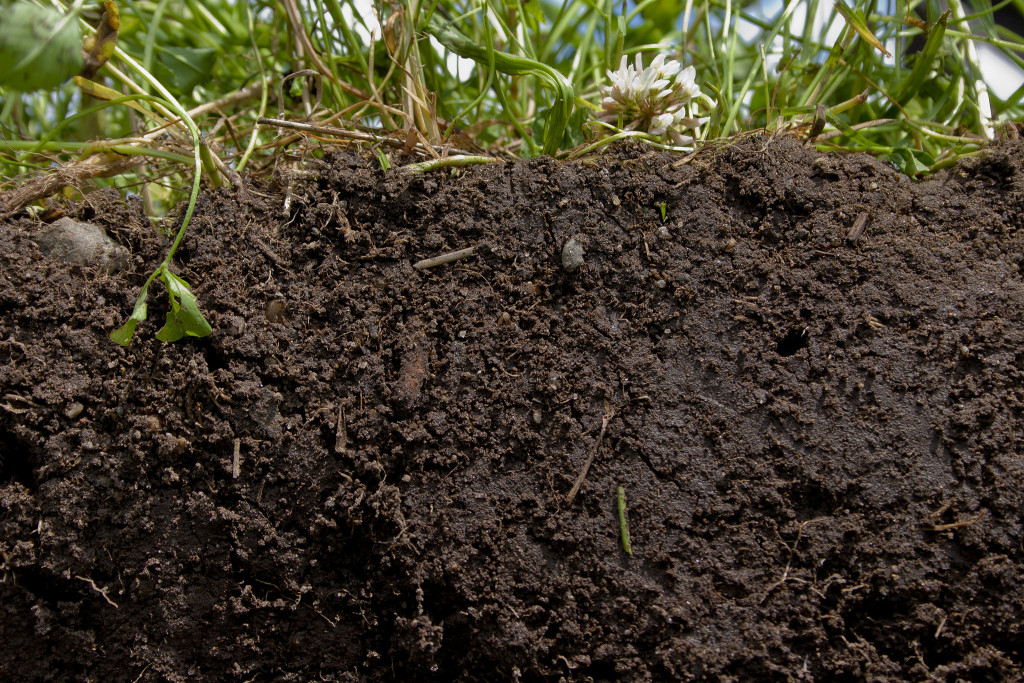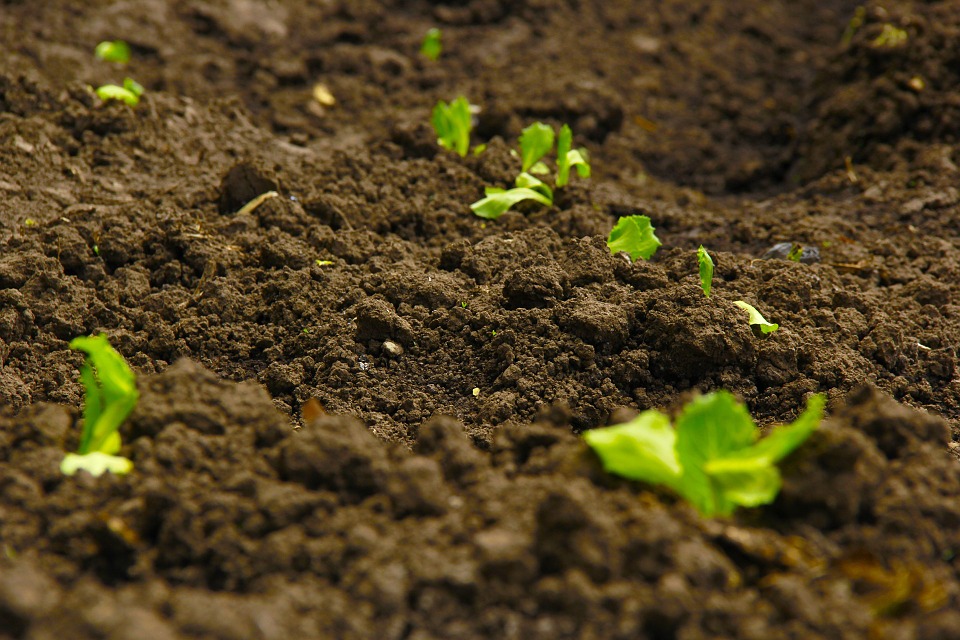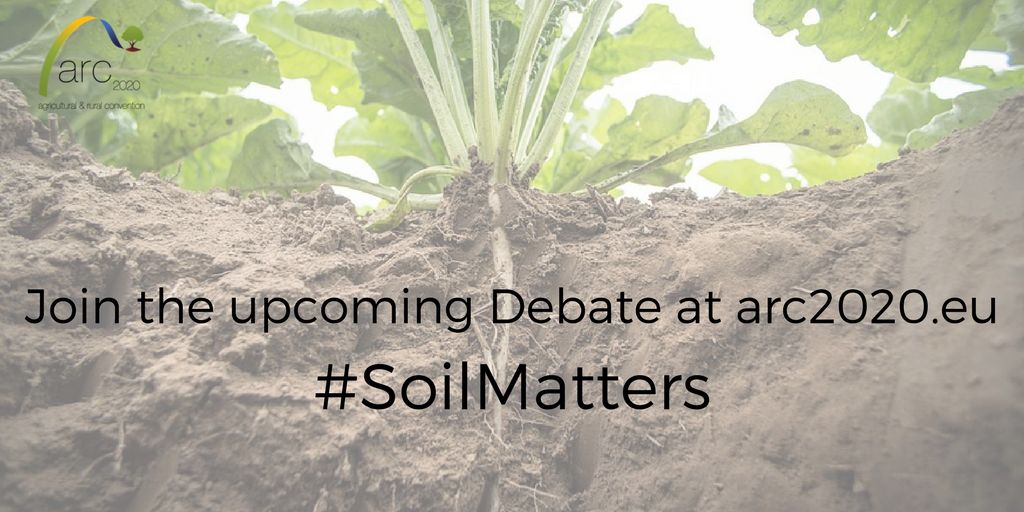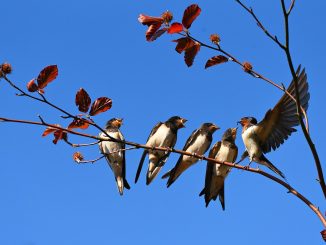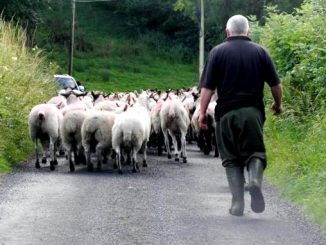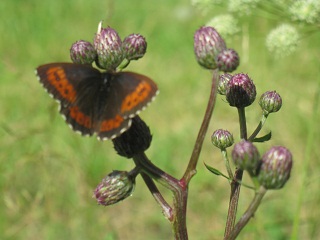ARC2020 will host a soil debate over the upcoming weeks. Are you interested in getting involved?
Europe should “acknowledge soil as its most strategic environmental resource, as it ensures food security, biodiversity conservation and climate change regulation.”
That’s according to the People4Soil European Citizen’s Initiative last year. 200,000 signatures were collected last year to try to make soil a policy priority. Soil has become an increasing pertinent topic in agri-food, but what are the best management techniques for saving what we have and for building better soil for the future?
Organic, agroecological techniques have been shown to be of benefit to soil – from carbon storage levels to more microbiology – but what is the organic farming response to the arguments of conventional reduced/minimum or zero/no till methods? These methods have been cited as climate smart solutions. However they typically involve the use of herbicides, including the increasingly controversial Roundup and its key ingredient, glyphosate. How do we balance different interests and imperatives? And can reduced tillage and agroecological approaches work together?
#SoilMatters – so how best to treat it? In this debate we welcome both big and broad takes on best approaches, as well as detailed analysis of specific agri-industrial inputs and their soil impacts.
We will feature soil experts, farmers, stakeholders of varying styles and approaches in this #SoilMatters debate. We aim for a wide range of perspectives.
Already, we have canvasses people who have put themselves into the public domain on this topic, and asked them to contribute. This will be a written debate, with contributions, and then response articles by participants. So participants will make their case in an introductory article, and then reply to other people’s contributions.
There are a number of ways to get involved. Follow the hashtag #SoilMatters, making comments on our social media platforms (facebook and twitter). You can also comment on the articles themselves, and get in touch with us to make a dedicated contribution. We welcome farmers, soil scientists, activists, any concerned citizens who care for the life force beneath our feet.
Here’s a set of provocative statements to get the debate started.
- How is our soil? What is the current state of Europe’s soil – what works and what doesn’t work for soil health on farms? An intro to the state of it and to best practice.
- How is Europe’s soil going forward? In what direction is Europe’s soil going, and which geographical areas, sectors and farming systems show positive soil performance?
- Much is said about how soil is under threat – but is this 60-harvests-left approach actually accurate or helpful? Aren’t soils in some regions in good shape?
- Permanent grassland with livestock may be better for soil health than cropping systems – particularly maize monocultures. What does this mean for sustainability, climate change, farming practices and diet? How robust is the case for regenerative agriculture, and does it always have to include livestock?
- What’s the soil health case for organic and agroecological alternatives to business-as-usual? How does the ‘many little hammers’ approach stack up, both in overall agronomic management and in soil health terms. Where do these approaches fall down?
- What is the case for conservation tillage in its min till and no till variants? How does this compare to organic and agroecological approaches, in terms of soil and overall agronomic performance?
- Are the small number of conservation agriculturists, well-meaning and impactful as they are on a farm level – being used by Trans National Corporations as a friendly face – a front – to hide behind and to justify continued use of herbicides, substances which are, at the very least, “toxic to aquatic life with long lasting impacts”, and which have been shown also to be damaging to many taxa.
-
- On the other hand, are organic evangelists blind to the potential of conservation approaches, sticking doctrinally to total bans of substances irrespective of the evidence? Is judicious use of herbicides and fungicides in some contexts good for overall soil health? Or would this kill beneficial microbiology and retard necessary structural change, and accompanying R&D investment?
- How do different farming systems and approaches to soil health impact on biodiversity loss, pollution, pollination, climate change , vibrant rural areas and citizen buy-in?
- With such momentum from civil society towards banning herbicides, should conventional farming be genuinely integrating agroecological techniques as quickly as possible? Is this the final five years with glyphosate? Will individual EU Member states begin a phase out?
- Is the glyphosate debate about replacing one substance with another substance, as French President Emmanuel Macron has recently suggested, or is it more about completing farming systems – i.e. do we need more fundamental change in production?
- What about the areas the INRA have earmarked as difficult to achieve a glyphosate ban in at present – conservation tillage, vineyards, seed production and linen? Should these four be granted derogations, provided there is evidence – in planning and in practice – that farmers are working towards reduction/phase out of glyphosate?
- Is there enough evidence for conservation tillage as environmentally beneficial in the actual peer reviewed science, or is it still mostly at the anecdotal level? What about waterlogging, compaction and deep carbon storage? What other techniques need to accompany it (e.g. cover crops, rotations) for it to truly be sustainable? What about northern latitudes? Isn’t some ploughing good sometimes? Could no till on field scale in cereal crops usher in the massification and monoculturalisation of the farms of rural Europe, with huge fields, no hedgerows, big investments, general depopulation and more, as is the case in Argentina the US, Canada etc? Is it the conventional sector’s Trojan horse, making mixed diverse agroecolgical farms and landscapes in the end impossible?
- What’s the next step after the glyphosate saga’s current approval, for newly mobilised activists? Are these players now – after neonics and the glyphosate saga – a major force in agri-food policy, and what does this mean?

